- Home
- Parnell Hall
The KenKen Killings Page 2
The KenKen Killings Read online
Page 2
“What? Quoting a song lyric? You brought it up.”
“Even so.” Cora turned to Aaron. “You been noticing these mood swings lately?”
“I do not have mood swings!” Sherry protested.
“See?” Cora said. “Like that.”
“Aaron, defend me from this woman.”
“My wife does not have mood swings.”
“Wow! That’s pretty persuasive. I don’t know how I can argue with that. Did you know your husband was so good at debate when you married him, or is this an added perk?” Cora took a bite of salmon, chewed it around. “You know, for healthy food this is awfully damn good.”
“Delicious,” Aaron said.
“Oh. Bad line reading,” Cora said. “Way too automatic and mechanical. You’d think this was your fifth child.”
Sherry slammed down a fork. “Oh, for God’s sake! When we decide to have children, we’ll tell you.”
“That’s very considerate of you, since I tried to move out and you guilted me into staying.”
“You got a letter,” Sherry said, bluntly changing the subject.
“What do you mean?”
“The postman came, put a letter in the box. I came home, took a letter out of the box. Isn’t that how it works?”
“Where is it?”
“Kitchen table.”
“Why didn’t you give it to me?”
“You didn’t go in the kitchen.”
Cora sighed, lifted the plate off her lap, put it on the coffee table.
“I’ll get it,” Aaron said.
He hopped up, went and fetched the letter.
“Well, what is it?”
“I don’t know. Some law firm in Great Neck. Here.”
Cora’s eyes lit up. “Really?” She tore open the envelope, pulled out a check. “Hallelujah!” She pointed her finger at Sherry. “In your face, doubting Thomas! This will tide me over till my next book.”
“What is it?” Aaron said.
“My inheritance. From the late, lamented Chester T. Markowitz. Your little wife here thought it was a scam.”
“Is that a real check?” Sherry said skeptically.
“Of course it’s a real check.”
“From Chester T. Markowitz?”
“Don’t be silly. Dead men don’t send checks. It’s from the law firm of Fleckstein and Stone, conservator for the estate of Chester T. Markowitz.”
“Signed by the attorney?”
“Well, it’s not signed by Chester.”
“And it’s made out to you?”
Cora blinked. “Yes, it’s made out to me.”
“You hesitated.”
“No, I didn’t.”
Sherry smiled. “Cora, I’ve watched you interrogate suspects. You just exhibited all the classic signs you look for. Didn’t she, Aaron?”
Aaron looked at Sherry. At Cora. Back at Sherry.
Cora grinned. “Oh ho, you put him on the spot! He doesn’t dare cross you in your condition—”
“In my condition?” Sherry caught herself. “Nice try. Don’t change the subject. You hesitated when I asked if the check was made out to you. Why does that make you uneasy?”
“Boy, you’d have made a demon prosecutor. I’d watch out, Aaron. You’re in as much trouble as if you’d married Becky Baldwin.”
Even mention of the attractive attorney who was Aaron’s ex-girlfriend couldn’t sidetrack Sherry. If anything, it made her more suspicious. “What’s wrong with the check?”
“There’s nothing ‘wrong’ with it. It’s made out to Cora Felton Markowitz.”
“Oh, for goodness’ sakes!”
“Well, why wouldn’t it be, if I’m the widow? What’s the difference?”
“You know the difference. You can sign a check made out to Cora Felton and you haven’t committed a crime. You haven’t obtained money under false pretenses, forged a document, and perpetrated a fraud on the court.”
“Court? What court?”
“I don’t know. I’m not a lawyer.”
“Maybe you should have married Becky,” Cora said. “Well, if you kids are gonna argue…”
“Sit down!” Sherry took a breath. “Look, Cora, you’re a brilliant woman. At solving crimes you have no equal. If this check were made out to any other person whatsoever, you’d be the first to point out all the reasons they shouldn’t sign it. But wave ten grand in your face—”
“Ten grand!” Aaron said.
Sherry threw up her hands. “Oh, for goodness’ sakes. Yes, Aaron. Ten grand. This check is worth ten grand.”
“Which is why I’m not leaping to embrace the suggestion that I treat it like scrap paper,” Cora said.
Aaron frowned. “Anything else on the check?”
“No. Just the notation.”
“What notation?”
“Widow’s inheritance.”
“Oh?”
“Which doesn’t mean anything. Anyone can write anything on a check. All I’ve gotta do is take it down to the bank and cash it.”
“As the widow Markowitz.”
“As Cora Felton. I’ll deposit it to my account. The account of Cora Felton.”
“And you’ll sign it on the back?”
“Yes, I’ll sign it on the back.” Cora turned the check over, uttered a brief, terse comment that had little to do with banking.
“What’s the matter?” Sherry said.
“It’s nothing.”
“And it didn’t bother you. Yes, I noticed. Just what is this nothing that didn’t bother you?”
“It’s a lawyer’s check. He typed a release.”
“No kidding. What’s it say?”
Cora took a breath. She read, “ ‘I, Cora Felton Markowitz, do hereby agree that the amount of this check, to wit ten thousand dollars, represents the entire amount of the inheritance specified and/or implied in the last will and testament of my husband, Chester T. Markowitz, and I hereby relinquish any and all claims on any and all moneys which might be discovered to be part of the estate of the said Chester T. Markowitz.’ ”
“Gee,” Sherry said. “That’s not a red flag.”
“Oh, come on. What could possibly go wrong?”
Chapter
5
Chief Dale Harper parked the police car at the top of the driveway, got out, and surveyed the new addition. It was nearly finished. The backhoe was long gone, and the crew was down to a carpenter and a painter, mostly working on the trim.
Cora came walking up. “Like it?”
“That comply with local zoning ordinances?”
“Be a hell of a time to find out it didn’t.”
“Are you allowed in?”
“Don’t wanna upset the contractor. Until he’s done, it’s his house. If I poke my nose in, I’m delaying some painter or other and adding five hundred bucks to the job. It’s the reason I never had a maid. I wouldn’t be allowed in the house.” Cora frowned. “As I recall, Henry hired one. Just before the divorce.”
“Suppose you were allowed in the house. What would you find?”
“Aha!” Cora pointed to the second floor. “Bedroom, master bath. Two small bedrooms with bath.”
“Each?”
“No. One for the two. A hardship, but you gotta make sacrifices.”
“The master bedroom is yours?”
“Yeah, right. That was the original plan, but that was a month ago. Now I doubt if I’m allowed upstairs.”
“Oh?”
“I think they’re starting a family. Sherry says no, but that doesn’t stop me from kidding her. Anyway, they’re moving upstairs. I’m left with the house. Except for the office. And the kitchen. And the living room. I think I get to keep my bedroom, but I’m not sure. Actually, there’s a perfectly nice living room over there. Along with what Sherry refers to as a ‘modern kitchen.’ Which I’m sure is also perfectly nice, but with the assessment of ‘modern’ hanging over its head, I doubt it will be used much.”
“Are you allowed in the li
ving room?”
“In theory. It would have been so much easier for them just to throw me out.”
“There’s a basement?”
“There is indeed. After living on a slab all these years, it’s a thing of beauty and a joy forever. Of course, it’s a problem.”
“Why?”
“Well, there’s a furnace room and a laundry room and a half bath. And a storage closet and a freezer chest. Can’t argue with that. The rest of the basement’s the bone of contention.”
“How come?”
“I want a pool table.” Cora frowned. “Don’t look at me like that. As a girl, I was good. Used to hustle beers playing bar pool.”
“Sherry said no?”
“Sherry said yes.”
“What’s the problem?”
“Sherry also said she’s not knocked up.”
“That’s a nice way to put it.”
“It is, isn’t it? I was going to say a bun in the oven, but it seemed too wordy. Anyway, the pool room is now a game room.”
“So, your idea of a game room…”
“Is pool, poker, and penny ante bridge. The three p’s. Not tricycles and building blocks.”
“Cora, even if that were true, it’s years away. Kids are small. They don’t get around much.”
“I know.”
“So what’s the problem?”
Cora made a face. “They won’t let me smoke.”
“What?”
“They say I can’t smoke in the addition.”
“Well, it’s nice and new there, why should it smell like an ashtray?”
“Because I’m in it.”
Harper smiled. “I see your problem.”
“So?”
“You may have to quit smoking.”
“You’re a big help. You know what it took me to quit drinking?”
Harper started to answer, flushed. It had taken a man to make her stop drinking. The chief didn’t want to point that out. It was a rhetorical question, anyway. Cora was in full grumbling mode, and nothing was going to make a difference.
“Listen. The reason I dropped by…”
“It wasn’t just to see the house?”
“No. I got a crime scene.”
“Someone’s dead?”
“No one’s dead. There’s other crimes besides murder. And other crime scenes. This one’s a robbery.”
“Well, that’s something. What was taken?”
“Nothing.”
Cora scowled. “Chief, are you messing with me? Believe me, I’m not in the mood.”
“I can see that.” As she started to flare up, he quickly added, “Roger Randolph. You know him? The banker.”
“He owns a bank?”
“He works in it. Not as a teller, but at a desk. He approves loans.”
“He doesn’t turn them down?” Cora said dryly.
“You get turned down for a loan?”
“I haven’t tried to get one. I just have a thing with job titles. ‘He approves loans.’ It means he also rejects them. But you don’t hear a guy introduced as ‘He rejects loans.’ The guy evaluates and decides on loan applications. Isn’t that what he does?”
“Yes.”
“To say he approves them makes him sound like such a good fellow.”
“Well, whatever you want to call him, he got home from the bank this afternoon and found he’d been robbed.”
“Of nothing.” Cora nodded. “It was probably someone who asked for a loan and got nothing. You’re bringing me a nonexistent crime. A robbery that didn’t happen. Too bad it wasn’t a murder. We could interview the corpse.”
“Would you be happier with the term attempted robbery?”
“I don’t know. What did the robber attempt to steal?”
Harper frowned. “That’s the problem.”
“Nothing? The robber attempted to steal nothing? And the robber succeeded in stealing nothing. That’s not an attempted robbery. That’s a fait accompli.”
“Anyway, Randolph’s mighty upset about it.”
“A robbery that didn’t happen? Yeah, that would upset me.”
“The perpetrator got into his house, went upstairs, lifted down the picture over his bed, and opened the wall safe.”
“But they didn’t take anything?”
“No.”
“Why not?”
“There was nothing in the safe.”
“So, what’s the problem?”
“There is now.”
Chapter
6
Roger Randolph lived at the top of the hill in a two-story frame house, white with black trim, like the majority of houses in Bakerhaven. The banker, a slight man with a milquetoast complexion, met them outside. His manner was much more ingratiating than Cora imagined it must be when approving loans.
“I’m glad you’re taking this seriously,” he said. “Considering nothing was stolen.”
“It’s still an unlawful entry,” Harper said. “That’s serious.”
“Assuming you didn’t leave the door unlocked,” Cora said.
Randolph frowned, immediately looked much more the way Cora had envisioned him.
“I assume you know Cora Felton?”
“Only by reputation. I’ve seen you around town.”
“You make me sound like a lady of the evening.”
Randolph blushed.
“I’m kidding. Come on, let’s see your safe.”
The banker led them upstairs to the bedroom. The picture lay on the bed. The safe was open.
“This is just the way you found it?” Cora said.
“That’s right.”
“And why did you leave it this way?”
He pointed at Chief Harper. “He told me to.”
“I wanted you to see it,” Harper said.
“How come?”
“Because there’s something in the safe.”
“If it’s a crossword puzzle, I’ll kill you.”
“It isn’t.”
Cora reached in, pulled out a sheet of paper.
Her eyes widened. “Oh, my God. It’s a KenKen®.”
“What’s that?”
“The new number puzzle. Haven’t you seen them? They have them every day in The New York Times.”
Harper flushed slightly. Cora realized he didn’t read it.
“What does it mean?” he asked.
“Nothing. It’s just numbers.”
“It’s not just numbers.” Harper pointed. “There are pluses and minuses.”
“Operations. Addition, subtraction, multiplication, and division. All the numbers in a darkly outlined area will add, subtract, multiply, or divide to yield the number by the operation sign.”
“You lost me.”
“Oh, come on. It’s easy. Look at the last two boxes in the first row across. See the number 7 +? That means the numbers in those two boxes add up to 7. So they could only be 3 and 4.”
“Or 5 and 2,” Harper pointed out.
Cora shook her head. “Couldn’t be. This is a 4-by-4 KenKen. It uses only the numbers 1, 2, 3, 4. Each number appears once, and only once, in every row or column. It’s like sudoku with math.”
“I see,” Harper said.
Cora had a feeling he was just saying that. “Of course you do. So the only two numbers that give you 7+ have to be 3 and 4. Or 4 and 3. They could be in either order. But only one is right.”
“How do you know which?”
“They have to fit in with the other rows and columns. 7+ tells you the answer will be 3 and 4 or 4 and 3. You have to narrow it down.”
“How?”
“Okay. Look just below those two boxes. See the 3- in the second box down in the last vertical column? That means one of the two numbers in the darkly outlined boxes will subtract from the other to make 3. The only two numbers that do that are 4 and 1.”
“Which is which?”
“You don’t know that yet. But one of those boxes is a 4, and one of them is a 1. That means the box directly ab
ove the 3- can’t be a 4. Because there can’t be two 4’s in that column.”
“So?”
“That tells you where your 3 and 4 go in your 7+ boxes. The last box can’t be a 4, so it has to be a 3. So the other box, the one with the little 7+ in it, has to be a 4.”
“Uh-huh. What else can you tell?”
“See the box on the bottom of the second column? With the dark line all around it and the 1 in the corner?”
“Yeah.”
“That’s a gift. You don’t have to do anything. That tells you that box is a 1.”
“I like that.”
“I thought you would. And the two boxes with the 12× have to be 3 and 4, because they multiply to give you 12. And do you know what that means?”
“No, but I’m sure you’re going to tell me.”
“That means the square just above them, the top square in the second column down, has to be a 2.”
“Why?”
“Because you already have a 1, 3, and 4 in the column, and the column has to have one of each number.”
“Yeah,” Harper said. “But now look. That 4× in the upper left corner has three squares marked off together.”
“Right. It’s a triple. That means the three numbers multiply to make 4. The only three numbers that do that are 2, 2, and 1.”
“That’s not true,” Roger Randolph said. “What about 4, 1, and 1?”
“Ah, the banker chimes in,” Cora said. “Yes, 4, 1, and 1 do multiply and give you 4. But it can’t be that in this case, because we just filled in the top square in the second row with a 2. That’s one of our three numbers. So it has to be 2, 2, and 1.”
“I thought you couldn’t have two 2’s,” Chief Harper said.
“You can as long as they’re not in the same row or column. Which is great. It tells you where they go. The 2’s have to be on the wings of the triple, and the 1 has to be in between them in the square with the 4×.”
“I’ll take your word for it,” Harper said. “Just solve the damn thing.”
“Mind if I write on this?”
“Not at all.”
Cora solved the KenKen.
“So, what does it mean?”
“It doesn’t mean anything.”
“But it has to.”
“Why?”
“It was left there.”
“So?”
“Someone went to a lot of trouble to break in here and leave it.”

 Clicker Training
Clicker Training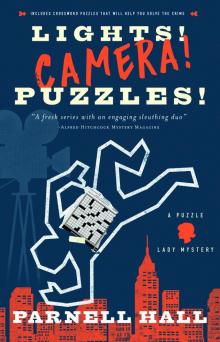 Lights! Camera! Puzzles!
Lights! Camera! Puzzles!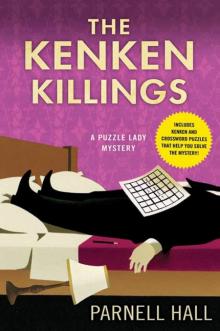 The KenKen Killings
The KenKen Killings 12-Scam
12-Scam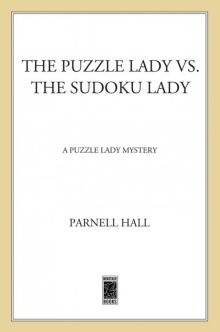 The Puzzle Lady vs. the Sudoku Lady
The Puzzle Lady vs. the Sudoku Lady 2 Murder
2 Murder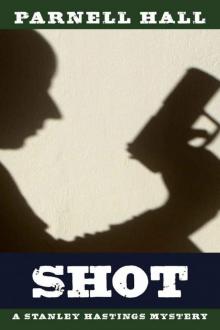 7 Shot
7 Shot You Have the Right to Remain Puzzled
You Have the Right to Remain Puzzled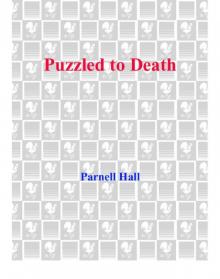 Puzzled to Death
Puzzled to Death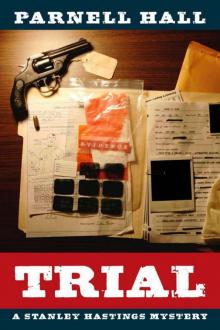 11-Trial
11-Trial The Witness Cat (Steve Winslow Mystery)
The Witness Cat (Steve Winslow Mystery) With This Puzzle, I Thee Kill
With This Puzzle, I Thee Kill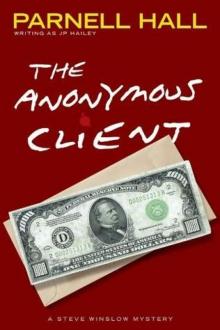 The Anonymous Client sw-2
The Anonymous Client sw-2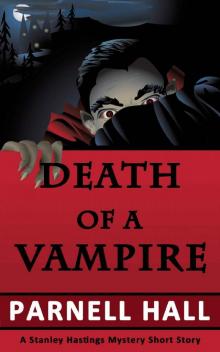 Death of a Vampire (Stanley Hastings Mystery, A Short Story)
Death of a Vampire (Stanley Hastings Mystery, A Short Story) The Wrong Gun sw-5
The Wrong Gun sw-5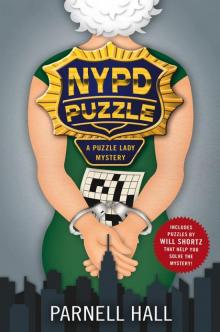 NYPD Puzzle
NYPD Puzzle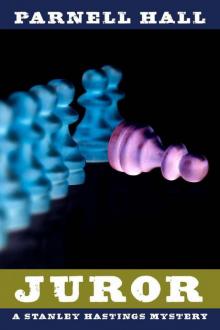 6 Juror
6 Juror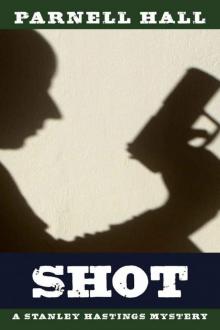 07-Shot
07-Shot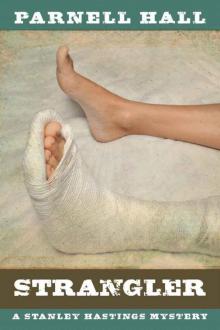 04-Strangler
04-Strangler 02-Murder
02-Murder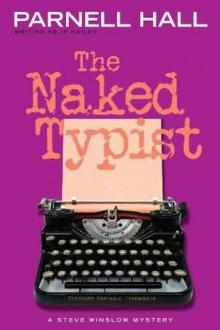 SW04 - The Naked Typist
SW04 - The Naked Typist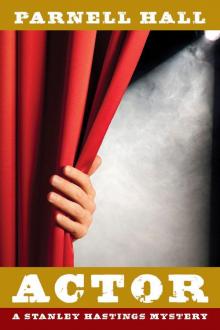 Actor
Actor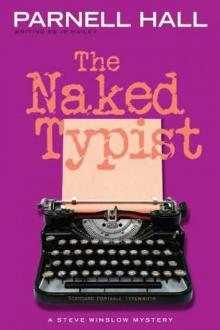 The Naked Typist sw-4
The Naked Typist sw-4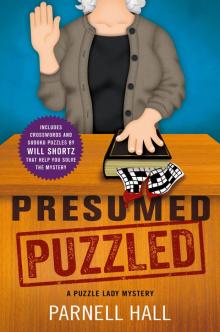 Presumed Puzzled
Presumed Puzzled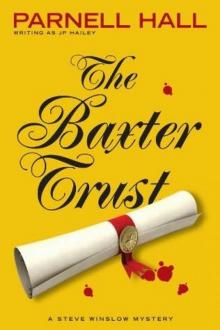 SW01 - The Baxter Trust
SW01 - The Baxter Trust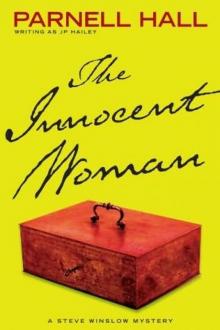 SW06 - The Innocent Woman
SW06 - The Innocent Woman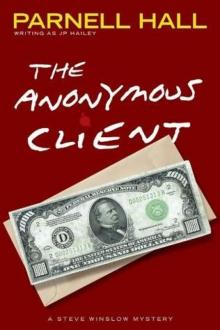 SW02 - The Anonymous Client
SW02 - The Anonymous Client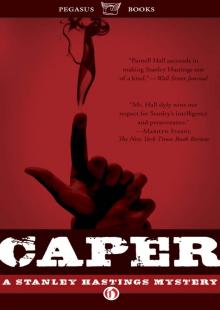 Caper
Caper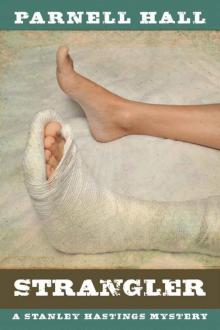 4 Strangler
4 Strangler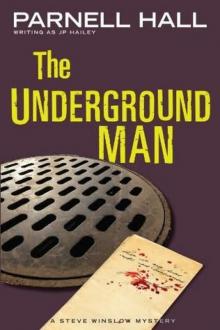 The Underground Man sw-3
The Underground Man sw-3 Manslaughter (Stanley Hastings Mystery, #15)
Manslaughter (Stanley Hastings Mystery, #15) A Puzzle to Be Named Later--A Puzzle Lady Mystery
A Puzzle to Be Named Later--A Puzzle Lady Mystery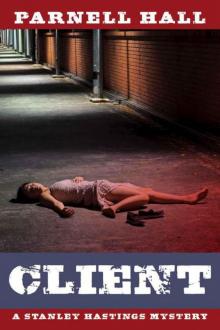 05-Client
05-Client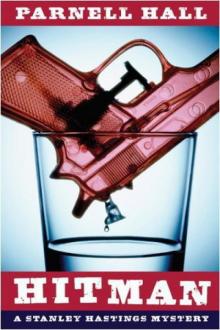 16 Hitman
16 Hitman SW05 - The Wrong Gun
SW05 - The Wrong Gun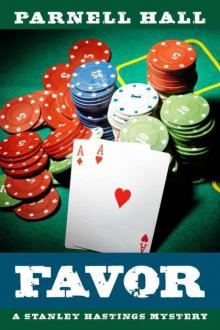 3 Favor
3 Favor Last Puzzle & Testament
Last Puzzle & Testament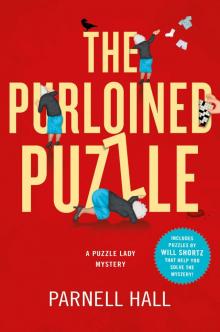 The Purloined Puzzle
The Purloined Puzzle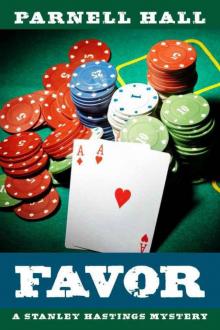 03-Favor
03-Favor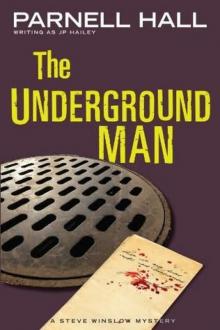 SW03 -The Underground Man
SW03 -The Underground Man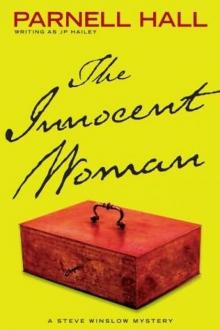 The Innocent Woman sw-6
The Innocent Woman sw-6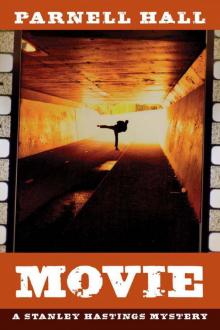 10 Movie
10 Movie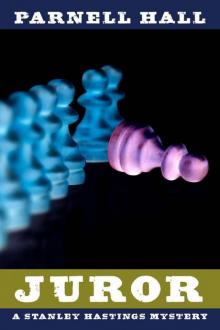 06-Juror
06-Juror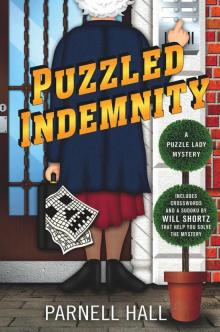 Puzzled Indemnity
Puzzled Indemnity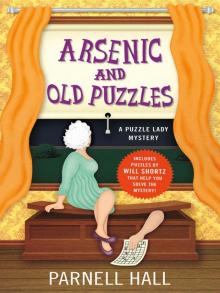 Arsenic and Old Puzzles
Arsenic and Old Puzzles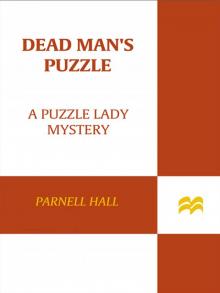 Dead Man's Puzzle
Dead Man's Puzzle Safari
Safari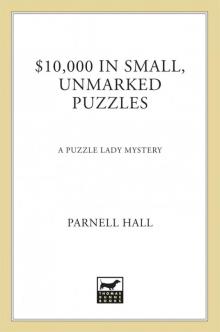 $10,000 in Small, Unmarked Puzzles
$10,000 in Small, Unmarked Puzzles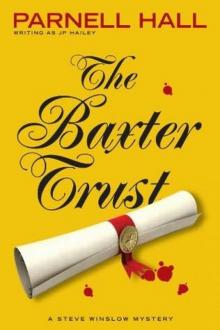 The Baxter Trust sw-1
The Baxter Trust sw-1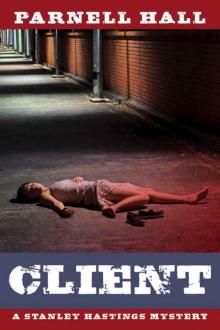 5 Client
5 Client Cozy (Stanley Hastings Mystery, #14)
Cozy (Stanley Hastings Mystery, #14)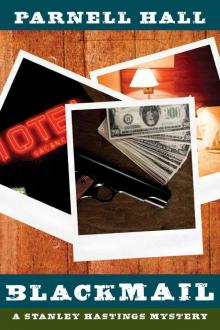 Blackmail
Blackmail A Puzzle in a Pear Tree
A Puzzle in a Pear Tree A Clue for the Puzzle Lady
A Clue for the Puzzle Lady Clicker Training (Stanley Hastings Mystery, A Short Story)
Clicker Training (Stanley Hastings Mystery, A Short Story)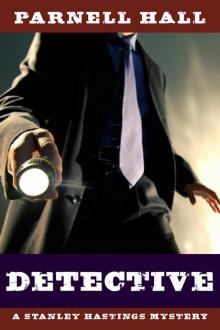 Detective (Stanley Hastings Mystery Book 1)
Detective (Stanley Hastings Mystery Book 1)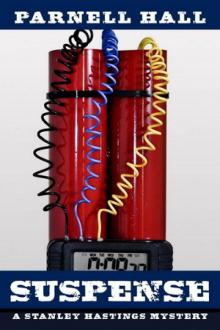 13 Suspense
13 Suspense